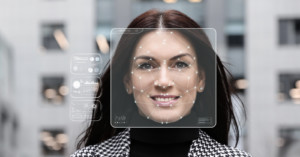
YouTube Now Allows You to Remove AI Deepfakes of Yourself
Last month, YouTube quietly updated its privacy policy to allow people to request the removal of AI-generated deepfake versions of themselves.

Last month, YouTube quietly updated its privacy policy to allow people to request the removal of AI-generated deepfake versions of themselves.

A disturbing report has revealed that personal photos of Brazilian children have been included in a major image library used to train AI image generators.

Adobe, no stranger to controversy, finds itself in hot water yet again. People have taken note of updated terms of use for using Adobe software and are outraged, fearing that Adobe has complete access to a user's content.

Apple users are reporting that old photos -- including NSFW ones -- are reappearing on their devices after updating to the latest iOS 17.5.

In one of her most famous quotes, the photographer Dorothea Lange said that "the camera is an instrument that teaches people how to see without a camera."

To comply with a recent law that restricts how Californian law agencies can share photos and mug shots of suspected criminals, one police force is placing Lego heads on suspects to conceal their identities.

Airbnb has said that indoor security cameras will be prohibited from all of its listings around the world.

For residents and tourists alike, Google Maps Street View is an exceptionally useful navigational tool. However, not every country has welcomed Google's iconic Street View cars to their streets. One of these longtime holdouts, Germany, has only recently begun to change its tune after more than a decade of resistance. But why?

A child's online privacy has long been a concern for parents and guardians, and even law enforcement. It is a topic mired in debate, and it's also an ever-changing technological landscape thanks to new AI tools. Wading into the complicated situation is freelance writer Hannah Nwoko in a new piece for The Guardian.

Students at the University of Waterloo in Canada have expressed their dismay after discovering the M&M's vending machine installed on their campus has been spying on them.

WhatsApp may be working on a way to block users from screenshotting your profile picture.

A mother has been left "horrified" after live images of her children were beamed from a city council camera for public consumption.

In a partnership with the Center for Open Science, Facebook and Instagram parent company Meta revealed it will give data to researchers for a study.

With the holiday season just around just the corner, a consumer advocacy group has warned that advanced technological children's toys could be at risk of being hacked.

Michigan Supreme Court has heard a remarkable case in which a man has complained that his Fourth Amendment rights were violated after the township he lives in hired a drone photographer to spy on his property.

California Governor Gavin Newsom has signed into law a bill that is designed to prevent car companies from selling photos or videos captured from inside a vehicle to third parties.

Online education platform MasterClass has been accused of using a tracking tool to transmit certain customer information to Meta for the purposes of advertising without users' consent.

Brave, a privacy-focused search engine, has incorporated images and videos for the first time but users won't have to worry about being profiled for the pictures they search.

Meta's Ray-Ban Stories which were launched nearly two years ago sold decently well, but those who did purchase the smart glasses apparently aren't really using them.

Canon has warned that Wi-Fi connection settings stored in the memory of some of its inkjet printers may not be deleted by the usual initialization process and pose a security risk when disposed of.

Meta CEO Mark Zuckerberg is making news for more than Meta's popular new Twitter killer, Threads, the famous CEO posted a family portrait on Instagram that has caused a stir across social media.

The Federal Trade Commission (FTC) has charged home security camera company Ring with customer privacy violations, including allowing any employee or contractor to access consumers' private videos.

Meta has been hit with a record-setting $1.3 billion fine from European Union (EU) regulators early Monday and was ordered to stop transferring data on EU residents to the United States.

Under current New Hampshire law, hunters can enter private property and mount game cameras -- camera traps designed to track prey for the purposes of hunting -- without permission from the landowner. Pending legislation, New Hampshire Senate Bill 14, aims to change that.

Controversial facial recognition company Clearview AI says that it has scraped more than 30 billion photos from social media platforms, and it is being used by more than 2,400 law enforcement agencies around the United States.

A DIY hoodie that thwarts surveillance cameras by blinding them with infrared light has been made available.

Photo editing app Lensa AI's terms and conditions allow it to distribute and use users' images without any compensation.

Google is changing how Photos estimates missing photo locations and will no longer use information from Location History for new photos and videos when camera location settings are turned off.

When browsing Instagram, it could be tempting to take a screenshot of a Story, particularly since the content is always changing, advancing to the next Story after only a few seconds. If you give in to that urge, you might wonder if the owner of the account gets notified about your interest and that you saved an image from their story or feed.

A Dutch court has ruled that a U.S.-based software company violated an employee's human rights after it forced him to keep his webcam on while working.